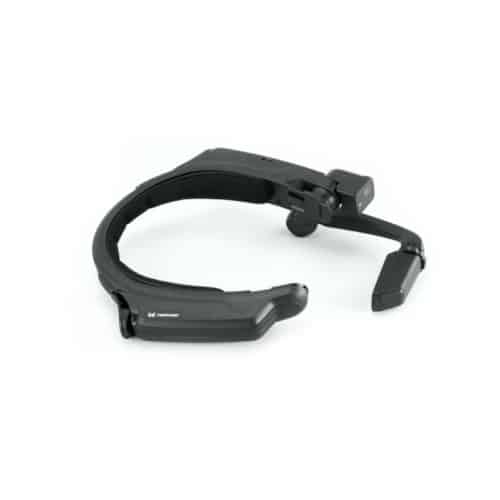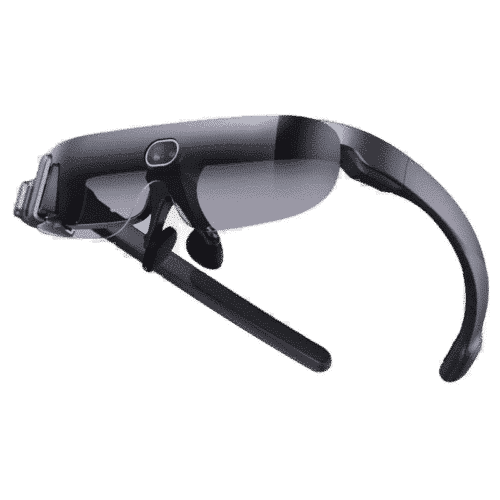Process Digitization: How Industrial Companies Transform Their Workflows with Workflow Apps
The number of technology pioneers in German industry is small. Manufacturing companies have found it difficult to digitize processes that have been in place for decades. In this respect, the transformation is a win-win in every respect. We explain why reservations on the part of industrial companies are unfounded, which processes in particular benefit from digitization, and what is important during the transformation.
Status quo: German industry lags behind in process digitization
According to a study by the Fraunhofer Institute, 41 percent of industrial companies in Germany are study by the Fraunhofer Institute still Digital Starters. Many companies have already achieved a good level of digitization in the back office, controlling and customer service. Manufacturing employees, however, in many cases still work as they did 30 years ago. With checklists and instructions on paper. You may be wondering why companies haven’t invested more resources to digitize these processes so far?
Two reasons are crucial: First, executives are not always convinced that digitization will really bring major productivity benefits; second, they fear high investments. Both arguments can be refuted:
- Digitizing inefficient processes does not improve productivity. However, those who strategically digitize business processes and examine and adapt workflows will see results, particularly in the area of the store floor – especially since digitization is a prerequisite for going beyond Workflow automation to achieve even more speed.
- In recent years, providers such as Intoware have come onto the market with innovative applications that allow companies to gradually and cost-effectively enter into process digitization. Platforms such as Workflo , with their apps for smartphones, tablets and Smart Glasses designed specifically for industrial companies.
In fact, executive attitudes are changing: demand for workflow management applications is growing rapidly. According to analysts at Grand View Research, the market volume will increase by 30 percent by 2028.
Learn more in our article about Workflow Management to learn more about the organization of workflows.
What distinguishes the latest generation of process digitization
Digitizing processes has already brought enormous economic benefits in recent years. But with new technologies like Augemented Reality , smart glasses and artificial intelligence are expanding the range of applications and performance of digital tools, especially for industry.
Smart Glasses

Users no longer have to interrupt their work processes to look up details about systems in documentation, check off checklists or document results. When they wear smart glasses, they can keep an eye on both the machine and apps and control the software with voice commands. Thanks to AI, speech recognition is now so sophisticated that it is a real relief.
ALEGER offers the best smart glasses on the market
-

RealWear HMT-1, Industrial Smart Glasses, 20 degree display, IP66 MIL-STD-810G
€1.795,50excl. 20% VAT
zzgl. Shipping Costs
In den Warenkorb -

Rokid Glass 2, foldable smart glasses, 40 degree field of view, 10,000 mAh battery, 96 g weight
Weiterlesen -

Rokid X-Craft for ATEX Zone 1 and 2 as AR headband, hands-free control, 5G, 3 microphones
Weiterlesen -

Microsoft Hololens 2 Industrial Edition
€5.499,00excl. 20% VAT
zzgl. Shipping Costs
In den Warenkorb -

nReal AR glasses for Android smartphones, full HD display, 50 degree field of view, privacy screen
Weiterlesen
Augmented Reality (AR)
AR Software ensures that digital information is superimposed directly into the real environment – where it is needed. Users can access the applications via tablets and smartphones as well as smart glasses. What dimensions a new machine should have in order to be ideally integrated into the production line, what next steps need to be taken during assembly – all of this is part of the design process. AR application areas are manifold. What they all have in common is that augmented reality can be used to simulate these processes in order to save costs and increase safety.
Optimize workflows digitally - the key benefits
Process digitization is not just a zeitgeist phenomenon. Especially in combination with new technologies such as AR and AI, software is clearly superior to paper-based organization from an economic perspective. Not only in the back office, but in every area of the company.
Fewer errors
Digital processes minimize human error: By allowing specialists in warehouses and production halls to be supported by apps or via remote support through the work processes, the error rate drops massively. At the same time, occupational safety and health are on the rise. Since employees can make entries directly by voice command and without interrupting work at the point of use, the risk of transmission errors is also minimized.
Higher quality
Digital processes force compliance with quality standards. When employees are required to fill out mandatory fields or upload photos, forgetfulness and lack of concentration don’t stand a chance of affecting work results. Since the knowledge for completing tasks is anchored in the applications independently of people, quality does not suffer even if responsibilities change at short notice.
Higher productivity
When employees can no longer manually transfer paper lists into digital systems, but can enter information into apps on the spot and by voice command, this already saves working time. When connection and communication activities are additionally automated, this unleashes enormous productivity benefits.
For example, if spare parts need to be ordered, digital processes can be set up to trigger orders automatically without the need to fill out order forms manually. And in the event of machine faults, specialists can find solutions much more quickly if typical problem-solving approaches are stored in workflow apps.
The 3 top use cases for digital processes in industry
Industrial companies achieve the greatest entrepreneurial effects when they work in field service, in Service management and digitize processes in production. To this day, paper documents are used more frequently than average, data is transferred manually, or various digital and physical lists are combined.
With the help of strategic process digitization and AR software, they can optimize a variety of workflows. Three use cases in which the return on investment is particularly rapid.
Assembly and production
For the assembly of highly complex industrial manufacturing plants, various paper documents are used, for example checklists for assembly, Maintenance plans and guides to assist employees during the onboarding process. Workflow applications enable manufacturers to provide assembly and installation instructions digitally. Companies could possibly take over the assembly themselves, but at least the on-site deployment of a skilled worker would be significantly shortened.
Learn more about innovative solutions for the industry:
- Remote maintenance : Incredible potential for the industry
- Modern repair in the industry
- Smart Factory – are you ready?
Many companies have not yet documented their production processes digitally, although new and experienced employees would benefit. The newcomers could work more quickly on their own with the help of digital instructions, and the experienced ones would not have to look up problems in manuals or call colleagues afterwards, but could use instructions stored in mobile apps and find a solution in a fraction of the time it used to take.
Maintenance & Service
To ensure a long service life of equipment without endangering employees or risking product quality, is Maintenance and maintenance are essential. Here, too, companies can optimize workflows by firmly defining instructions in digital apps.
Digital processes prevent employees from forgetting to check certain measured values. Applications can remind of further testing if the entered values seem critical. They speed up the workflow and, when used correctly, are able to map audits from external specialists internally.
Quality controls
Where do processes get bogged down? Where did you make more mistakes? Which employees are particularly productive? When companies digitize their business processes, they are able to answer these questions much more quickly and concretely.
Digital processes not only speed up the execution of work, but also increase the quality of the work. This is because applications can collect valuable data and thus create a basis for the systematic improvement of processes.
Other use cases include:
- Digital Engineering
- Logistics
- Backoffice (Finances, Controlling)
- Product presentation and B2B sales
Conclusion: Production of the future is based on digital processes
Process digitization is not just a topic for controlling and human resources, but also leads to significant productivity benefits in production. With digital applications, standardized processes can be managed and documented, securely and quickly and without manual transfers from one system to the next.
Digital processes are the basis for making companies fit for the future. This is particularly true in production: Digital applications relieve employees through automation, increase their safety through standardized step-by-step processes and, by accelerating them, give them time for value-creating, creative activities.
Companies do have to invest first, but the costs are nowhere near as high as they were a few years ago. Technologies have evolved and successive transformation is possible via intuitive apps like Workflo. The entrepreneurial risk of switching to modern digital processes is low. Sure, the new processes won’t run perfectly from the start and it takes a learning curve, but there is much more risk for companies if they do nothing. Then they will certainly be outstripped by competitors who think in a more agile, faster and more opportunity-oriented way.
Finally digitize processes professionally – we’ll be happy to advise you!
Get a callback now:
